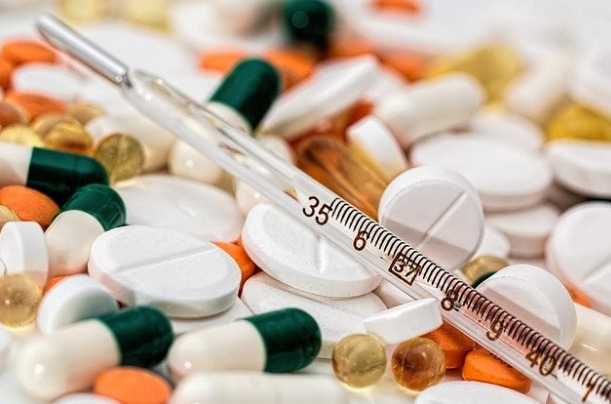Prescription drug coverage refers to how your plan can pay for the medication that you regularly require. Every health insurance plan has an approved list of prescription drugs that it covers. Although it is possible to get your health insurer to make an exception for a particular drug, it is easier to pick a plan that covers the prescription drugs you know you need from the very start.
Prescription drug coverage is an essential part of a comprehensive health insurance plan, but as the costs of drugs continue to rise, a lot of insurance companies continue to put up more restrictions on what drugs they can and can not cover. This means that even individuals who are enrolled in a plan with prescription drug coverage will incur substantial out-of-pocket costs. However, on HealthMarkets, locating the right plan is made easier for you through the comparison plans and their prices.
What You Need To Know About Your Drug Prescription Coverage
(Source: Pixabay)
1. Whether Your Insurance Plan Cover Your Prescription
Most Americans take medications regularly, so it is essential to know how and if your health insurance plan covers those drugs. Every insurance provider has a set list of medication that is covered by the plan they offer. Non-formulary medications are not covered by health plans which means that you will have to go through a lengthy process if you want to gain coverage or pay the full costs of your medication.
The list of covered drugs is often broken down into tiers that determine how much coinsurance or copay you will have to pay out-of-pocket. Since tier medication requires more cost-sharing compared to lower-tier medication, it is important to create a list of your current medication and compare it to your plan’s formulary so you can be sure that all your necessary prescriptions are covered.
2. How Much You Should Pay Before Your Medication Is Covered
The out-of-pocket amount which you are responsible for before your prescriptions are covered varies based on your coverage. You initially have to pay a premium for your coverage by making monthly payments. In other cases, these payments are paid quarterly or annually regardless of the services used.
You may also be required to meet a deductible before your drug prescription coverage kicks in. Insurers increasingly mandate a deductible to be met before covering pharmacy and medical services. Nevertheless, after your deductible is met, you may still have to pay an out-of-pocket cost for your medication.
3. The Out-of-Pocket Payments You Will Need to Make After Meeting Your Deductible and Paying Your Premiums
You will likely be responsible for particular out-of-pocket costs even after meeting your deductible. These expenses may include:
● Coinsurance: A percentage of the total drug prescription cost
● Copays: Flat fees required for payment of your prescription drugs
It is important to review your plan’s list of covered medications to get a rough estimate of the out-of-pocket expenses you will incur for the medication you take.
4. Whether You Need to Get Prior Approval Before Your Drug Prescription Is Covered
In some cases, insurance plans often require extra steps before covering prescription drugs. Some plans require fail first or step therapy which means that you may have to sample other types of medication before the plan covers the prescription that your doctor had originally prescribed. Other plans may also require you to get permission before covering your prescription, and these requirements often comprise additional steps for both practitioners and patients.
5. If Your Preferred Pharmacy in Your Plan’s Network
It is vital to always remember that in-network services and pharmacies are covered under an insurance plan. In contrast, out-of-network services and pharmacies are not and therefore require higher out-of-pocket expenses. Always check whether a pharmacy that’s convenient for you is in your plan’s network.
Food For Thought
Drug prescriptions are often expensive, and getting the right coverage will make a big difference. If you are having a difficult time paying for your drug prescription, then you should consider opting for prescription assistance programs. Always be clear about why you need a particular prescription and talk to your doctor about more affordable options that might be a suitable substitute.


















